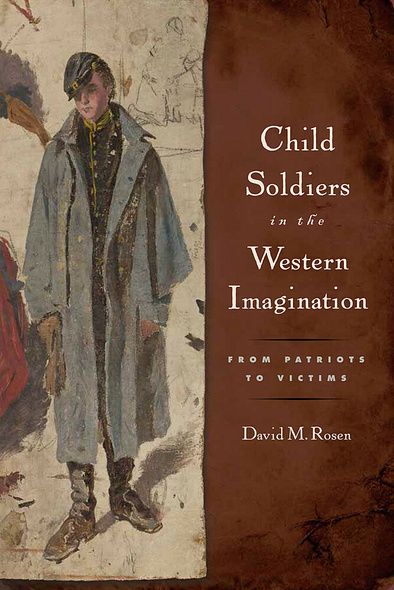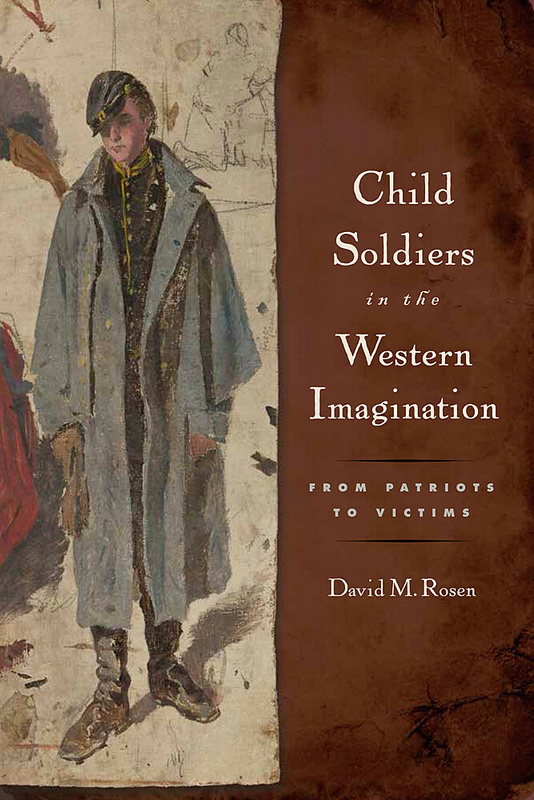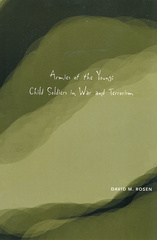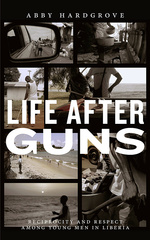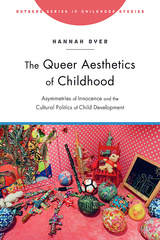Child Soldiers in the Western Imagination
From Patriots to Victims
Rutgers University Press
When we hear the term “child soldiers,” most Americans imagine innocent victims roped into bloody conflicts in distant war-torn lands like Sudan and Sierra Leone. Yet our own history is filled with examples of children involved in warfare—from adolescent prisoner of war Andrew Jackson to Civil War drummer boys—who were once viewed as symbols of national pride rather than signs of human degradation.
In this daring new study, anthropologist David M. Rosen investigates why our cultural perception of the child soldier has changed so radically over the past two centuries. Child Soldiers in the Western Imagination reveals how Western conceptions of childhood as a uniquely vulnerable and innocent state are a relatively recent invention. Furthermore, Rosen offers an illuminating history of how human rights organizations drew upon these sentiments to create the very term “child soldier,” which they presented as the embodiment of war’s human cost.
Filled with shocking historical accounts and facts—and revealing the reasons why one cannot spell “infantry” without “infant”—Child Soldiers in the Western Imagination seeks to shake us out of our pervasive historical amnesia. It challenges us to stop looking at child soldiers through a biased set of idealized assumptions about childhood, so that we can better address the realities of adolescents and pre-adolescents in combat. Presenting informative facts while examining fictional representations of the child soldier in popular culture, this book is both eye-opening and thought-provoking.
In this daring new study, anthropologist David M. Rosen investigates why our cultural perception of the child soldier has changed so radically over the past two centuries. Child Soldiers in the Western Imagination reveals how Western conceptions of childhood as a uniquely vulnerable and innocent state are a relatively recent invention. Furthermore, Rosen offers an illuminating history of how human rights organizations drew upon these sentiments to create the very term “child soldier,” which they presented as the embodiment of war’s human cost.
Filled with shocking historical accounts and facts—and revealing the reasons why one cannot spell “infantry” without “infant”—Child Soldiers in the Western Imagination seeks to shake us out of our pervasive historical amnesia. It challenges us to stop looking at child soldiers through a biased set of idealized assumptions about childhood, so that we can better address the realities of adolescents and pre-adolescents in combat. Presenting informative facts while examining fictional representations of the child soldier in popular culture, this book is both eye-opening and thought-provoking.
Child Soldiers in the Western Imagination is fascinating for readers from different backgrounds, including sociology, law, history and anthropology. ... The accessible language makes Rosen’s book a singularly important source in understanding the complexities of child soldiering.
A leader in the reinvigoration of child and youth studies in US anthropology, Rosen offers a mature scholar's command of the issues … Working against the expected binary, Rosen combines history and anthropology to challenge the image of child soldiers as particularly African or as the product of a new barbarism in war ... Highly recommended. Upper-division undergraduates and above.
Excellent, in-depth, and superbly written.
Rosen leaves readers in no doubt as to the dangers of historical amnesia.
In this masterly volume Rosen brings meticulous scholarship to bear in a powerful narrative challenging advocates who mythologize the innocence of child combatants across the developing world today.
DAVID M. ROSEN is a professor of anthropology and law at Fairleigh Dickinson University in Madison, New Jersey. He is the author of Armies of the Young: Child Soldiers in War and Terrorism (Rutgers University Press) and Child Soldiers: A Reference Handbook.
Preface and Acknowledgements
Chapter 1—A Tale of Two Orphans
Chapter 2—The Struggle over Recruitment
Chapter 3—Child Soldiers in World War II
Chapter 4—The Child Soldier in Popular Culture
Chapter 5—Modern Child Soldiers
Chapter 6—The Politics and Culture of Childhood Vulnerability
Notes
Selected Bibliography
Index

